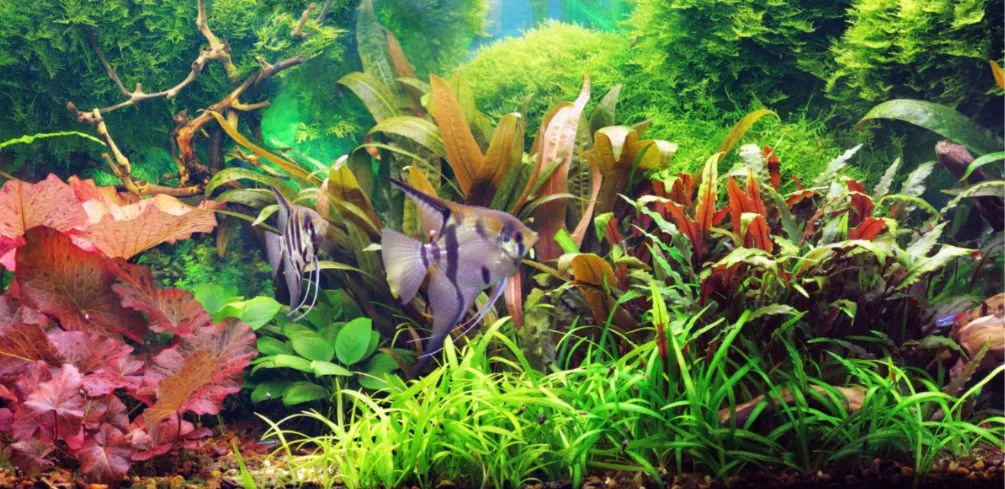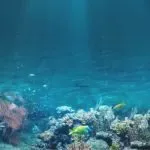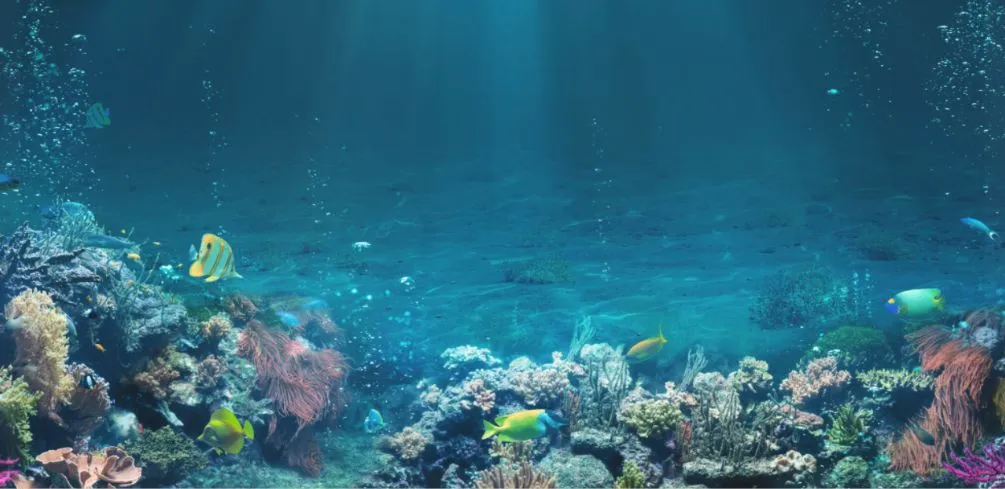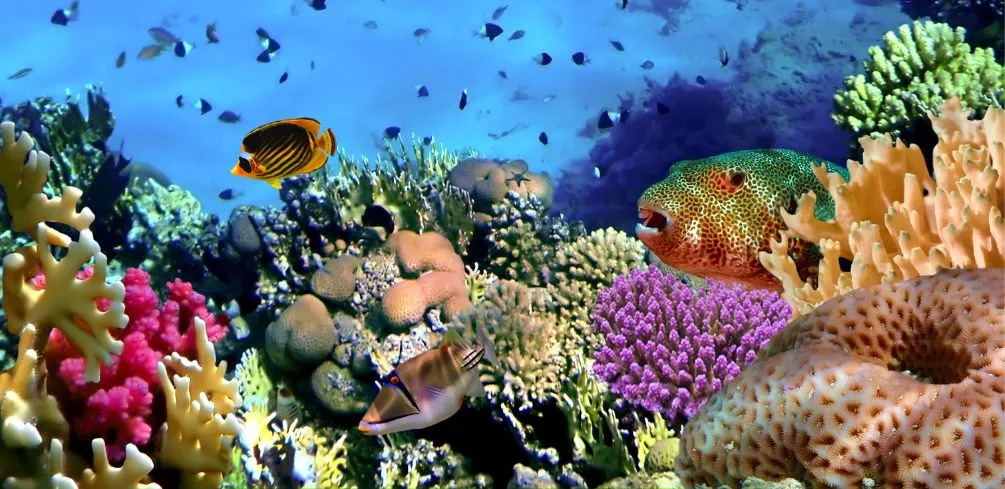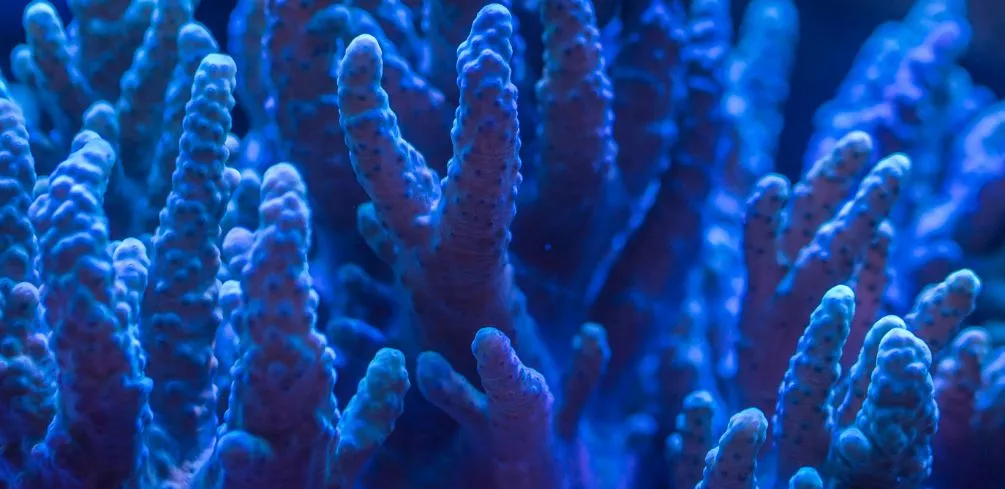Have you ever wondered if coral reefs can survive in freshwater? As someone who has always been fascinated by the diverse ecosystems that exist within our world of oceans, this question has intrigued me for a while.
After all, coral reefs are one of the most vibrant and complex underwater environments on Earth, but they’re also incredibly sensitive to changes in their surroundings. So, what happens when we take them out of their natural habitat?
To answer this question, we need to explore the unique characteristics of coral reefs and how they interact with their environment. While many people assume that these structures can only thrive in saltwater environments like oceans and seas, recent research suggests that some corals may adapt to freshwater conditions.
However, as with any scientific inquiry, the answer is not quite so simple – it requires us to delve deeper into the biology and ecology of these fascinating living organisms.
Compatibility Of Coral Reefs With Freshwater
As someone who loves exploring the world of the ocean and its marvelous creatures, I’ve always been fascinated by coral reefs. These underwater ecosystems are home to a vast array of species of marine life, including colorful fish, sea turtles, and even sharks!
However, one question often arises is whether coral reefs can survive in freshwater environments. The short answer is no – reef building corals require specific conditions to thrive, with seawater being one of the most important factors.
Coral polyps create skeletons from calcium carbonate, which dissolves easily in fresh water. As such, without access to saltwater or brackish water (a mixture of salt and freshwater), these organisms would be unable to build and maintain their structures.
Effects Of Adding Dead Corals To Freshwater Tanks
You may have heard that coral reefs can’t survive in freshwater. But what if I told you there’s a way to bring a little piece of the ocean into your own home? That’s right, folks – adding dead corals to your freshwater tank could give it an exotic and unique tropical twist!
Before you go out and start buying all the hard corals at your local fish store, let me explain why this works.
Corals are filter feeders that rely on tiny organisms in the water for their food. However, they also need calcium carbonate to build their skeletons and maintain their structure. When you add pieces of dead coral to your freshwater tank, those bits of calcium carbonate slowly dissolve into the water over time.
This adds essential nutrients back into the system that helps mimic the environment of a saltwater reef.
Plus, the aesthetic appeal is undeniable – who wouldn’t want a stunning display of colorful corals in their living room? Incorporating dead corals into your tropical freshwater setup is not only visually striking but provides benefits for both you and your aquatic pets!
Fish Population In Coral Reefs
When we think of coral reefs in the ocean, our mind automatically takes us to the beautiful and diverse marine life that exists within them. Fish are an integral part of these vibrant ecosystems and healthy reefs as they help maintain a balance by feeding algae and other smaller organisms.
However, it is important to note that fish populations in coral reefs are not always consistent due to various factors such as overfishing, pollution, climate change, and even natural disasters.
A healthy coral reef can support hundreds of different species of fish. These include small herbivores like damselfish and larger predators like groupers and sharks. The presence of fish in coral reefs also helps promote the growth of reef-building corals or hard corals through their excretions which provide vital nutrients for the soft corals below to thrive.
But what happens when freshwater enters the equation? Can coral reefs survive in freshwater environments? Let’s explore further with a few key points:
- Coral reefs cannot live in freshwater environments since they require saltwater to survive
- Freshwater runoff from land-based sources contributes to pollution, which negatively impacts fish populations in coral reefs.
- Overfishing leads to imbalanced food chains where certain fish become more abundant than others leading to a decrease in biodiversity
- Climate change affects water temperatures and acidity levels, which can cause bleaching events that damage the health of both corals and fish.
Importance Of Coral Reefs In The Ecosystem
Coral reefs are vital to our ecosystem, and their importance cannot be overstated.
Not only do they provide a habitat for marine life, but they also support reef building corals and plants that help maintain the biodiversity of the ocean.
Coral reefs act as a barrier against storm surges, preventing coastal erosion and protecting shorelines and sea bottom from heavy waves.
The role of coral reefs in maintaining the balance of our planet’s ecology is critical.
They serve as breeding grounds for many species of fish and other aquatic animals, which then become food sources for larger predators.
This creates a cascade effect throughout the food chain, ultimately affecting human populations relying on fishing industries for sustenance.
Therefore, it is essential that we protect these natural wonders by limiting pollution and reducing carbon dioxide emissions so that future generations can enjoy their benefits too!
Impact Of Water Temperature On Coral Reefs
When it comes to coral plants and reefs, many people wonder if they can survive in freshwater. The answer is no! Coral reefs are marine ecosystems and require saltwater to thrive. Freshwater has a different chemical makeup than seawater, which makes it difficult for reef building corals to create their calcium carbonate skeletons.
Water temperature also plays a crucial role in the health of coral reefs. Most reef-building corals prefer water temperatures between 73-84°F (23-29°C). When the water temperature rises above this range or fluctuates too much, it can cause stress on the coral, leading to bleaching events or even death.
Additionally, colder water temperatures can slow down metabolic processes within marine life, leading to slower growth rates and reproduction cycles for marine species.
So when it comes to coral reefs, remember that they need specific conditions to survive – including saltwater and stable water temperatures. By understanding these factors, we can work towards preserving these beautiful ecosystems for generations to come.
Potential Risks Of Adding Corals To Freshwater Tanks
Now that we’ve discussed the impact of water temperature on coral reefs, let’s move on to another important topic: whether or not coral reefs can live in freshwater tanks.
The short answer is no – coral reefs cannot survive in freshwater environments. This is because they are adapted to living in saltwater and their hard skeleton requires specific conditions to thrive.
Freshwater tanks lack the necessary salinity levels and other minerals that corals need to grow and sustain themselves. Additionally, most filter feeders that live alongside coral reefs require a constant flow of nutrient-rich salt water to survive.
Without this crucial component, these creatures would struggle to get the nutrients they need for survival. So while it might be tempting to add some colorful corals to the surface of your freshwater tank, it’s just not possible without severely compromising their health and well-being.
Conclusion
Overall, it is not recommended to keep coral reefs in freshwater environments.
While some species of coral may tolerate low salinity levels for short periods, they are ultimately adapted to living in the complex and delicate ecosystem of saltwater environments.
One example of the potential risks involved in keeping coral reefs in freshwater tanks is a case study where a hobbyist attempted to create a unique aquarium by adding dead corals to their existing freshwater tank.
Unfortunately, this caused an imbalance in the tank’s ecosystem and led to the death of several fish species that could not adapt to the changing conditions.
It is essential for us as aquarium enthusiasts and caretakers of our planet’s natural resources to carefully consider the compatibility and potential consequences before making any decisions about introducing new elements into aquatic ecosystems.
